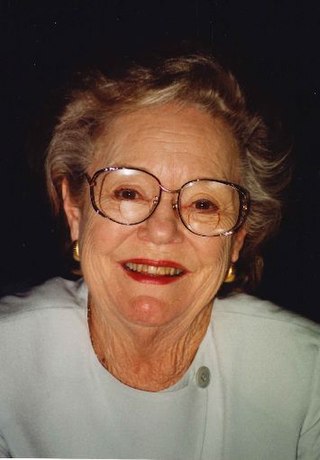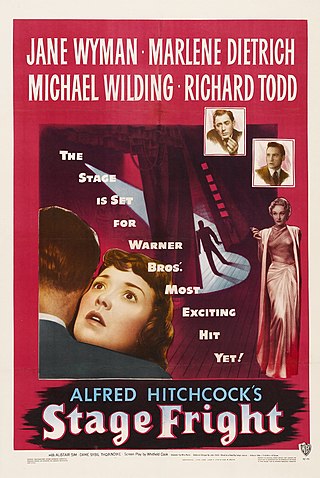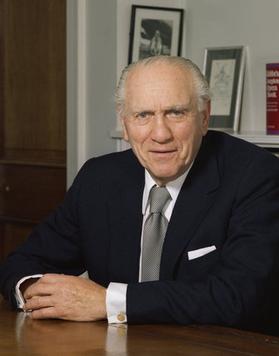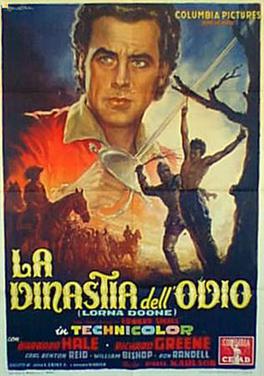
Sir Alfred Joseph Hitchcock was an English film director. He is widely regarded as one of the most influential figures in the history of cinema. In a career spanning six decades, he directed over 50 feature films, many of which are still widely watched and studied today. Known as the "Master of Suspense", Hitchcock became as well known as any of his actors thanks to his many interviews, his cameo appearances in most of his films, and his hosting and producing the television anthology Alfred Hitchcock Presents (1955–65). His films garnered 46 Academy Award nominations, including six wins, although he never won the award for Best Director, despite five nominations.

Dial M for Murder is a 1954 American crime thriller film directed by Alfred Hitchcock, starring Ray Milland, Grace Kelly, Robert Cummings, Anthony Dawson, and John Williams. Both the screenplay and the successful stage play on which it was based were written by English playwright Frederick Knott. The play premiered in 1952 on BBC Television, before being performed on stage in the same year in London's West End in June, and then New York's Broadway in October.

Patricia Alma Hitchcock O'Connell was an English-American actress and producer. She was the only child of English director Alfred Hitchcock and film editor Alma Reville, and had small roles in several of her father's films, with her most substantial appearance being in Strangers on a Train (1951).

The Paradine Case is a 1947 courtroom drama with elements of film noir set in England, directed by Alfred Hitchcock and produced by David O. Selznick. Selznick and an uncredited Ben Hecht wrote the screenplay from an adaptation by Alma Reville and James Bridie of the 1933 novel by Robert Smythe Hichens. The film stars Gregory Peck, Ann Todd, Alida Valli, Charles Laughton, Charles Coburn, Ethel Barrymore, and Louis Jourdan. It tells of an English barrister who falls in love with a woman who is accused of murder, and how it affects his relationship with his wife.

Stage Fright is a 1950 British thriller film noir directed and produced by Alfred Hitchcock and starring Jane Wyman, Marlene Dietrich, Michael Wilding and Richard Todd. The cast also features Alastair Sim, Sybil Thorndike, Kay Walsh, Hitchcock's daughter Pat Hitchcock in her film debut, and Joyce Grenfell in a vignette.

Michael Charles Gauntlet Wilding was an English stage, television, and film actor. He is best known for a series of films he made with Anna Neagle; he also made two films with Alfred Hitchcock, Under Capricorn (1949) and Stage Fright (1950); and he guest starred on Hitchcock's TV show in 1963. He was married four times, including to Elizabeth Taylor, with whom he had two sons.

Farley Earle Granger Jr. was an American actor.

John Dall was an American actor.
United States v. Paramount Pictures, Inc., 334 U.S. 131 (1948), was a landmark United States Supreme Court antitrust case that decided the fate of film studios owning their own theatres and holding exclusivity rights on which theatres would show their movies. It would also change the way Hollywood movies were produced, distributed, and exhibited. It also opened the door for more foreign and independent films to be shown in U.S. theaters. The Supreme Court affirmed the United States District Court for the Southern District of New York's ruling that the existing distribution scheme was in violation of United States antitrust law, which prohibits certain exclusive dealing arrangements.

Louis Charles Hayward was a South African-born, British-American actor.

Ruth Roman was an American actress of film, stage, and television.

Under Capricorn is a 1949 British historical drama film directed by Alfred Hitchcock about a couple in Australia who started out as lady and stable boy in Ireland, and who are now bound together by a horrible secret. The film is based on the play by John Colton and Margaret Linden, which in turn is based on the novel Under Capricorn (1937) by Helen Simpson. The screenplay was written by James Bridie from an adaptation by Hume Cronyn. This was Hitchcock's second film in Technicolor, and like his preceding color film Rope (1948), it features 9- and 10-minute long takes.

The following is a partial list of unproduced Alfred Hitchcock projects, in roughly chronological order. During a career that spanned more than half a century, Alfred Hitchcock directed over fifty films, and worked on a number of others which never made it beyond the pre-production stage.
Frederick Ahern was an American production manager.
Leslie Robert BurksA.S.C. was an American cinematographer who worked in many different film genres and collaborated several times with Alfred Hitchcock.

Sidney Lewis Bernstein, Baron Bernstein was a British businessman and media executive who was the founding chairman of the London-based Granada Group and the founder of the Manchester-based Granada Television in 1954. Granada was one of the original four ITA franchises. He believed the North's media industry had potential to be cultivated.

Rope is a 1948 American psychological crime thriller film directed by Alfred Hitchcock, based on the 1929 play of the same name by Patrick Hamilton. The film was adapted by Hume Cronyn with a screenplay by Arthur Laurents.

Lorna Doone is a 1951 American adventure film directed by Phil Karlson and starring Barbara Hale and Richard Greene. It is an adaptation of the 1869 novel Lorna Doone by R. D. Blackmore, set in the English West Country during the 17th century.
German Concentration Camps Factual Survey is the official British documentary film on the Nazi concentration camps, based on footage shot by the Allied forces in 1945.
Margaret Robertson was a British script supervisor and personal assistant to Alfred Hitchcock from the 1940s to the 1970s during which time she worked on his early films Under Capricorn (1948) and Stage Fright (1950), before joining his team permanently on Vertigo (1958), working thereafter on all of the director's remaining films.













